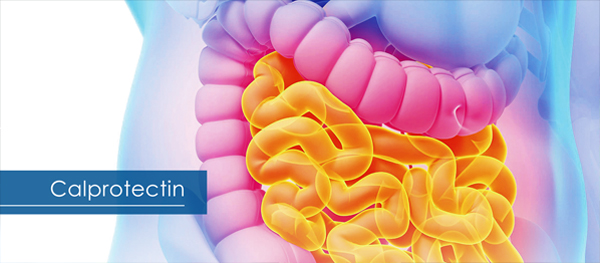Calprotectin is a neutrophil cytosolic protein with antimicrobial properties, which is present at increased concentration in stool samples during bowel inflammation. The stability of the protein to degradation keeps it stable in faeces for up to 7 days at room temperature, making it an ideal analyte.

Calprotectin is released by activation of leukocytes, giving increased levels in plasma, cerebral spinal fluid, synovial fluid, urine or stools as a consequence of disease in the relevant organ(s). Calprotectin inhibits zinc-dependent enzyme systems, as a result kills microbes and induces apoptosis in normal and cancer cells.
In the presence of calcium, calprotectin is remarkably resistant to protelolytic degradation and so is stable in stools kept at room temperature for 7 days. This is a non-invasive marker of intestinal inflammation (for example in Ulcerative Colitis (UC) and Crohn’s Disease (CD).
Available test for the diagnosis of Calprotectin:
Certest Turbilatex:
Certest Rapid Test:
- Calprotectin Card Test
- Calprotectin 50 + 200 Combo Card
- Calprotectin + Lactoferrin Combo Card
- FOB+Transferrin+Calprotectin+Lactoferrin Combo Card
Certest bioSCIENCE. For human Calprotectin detection:
